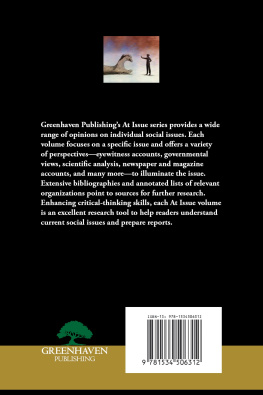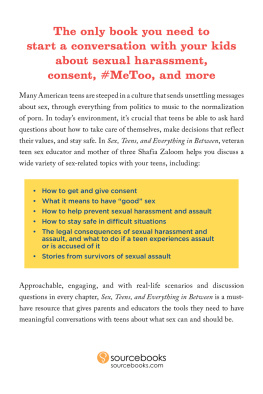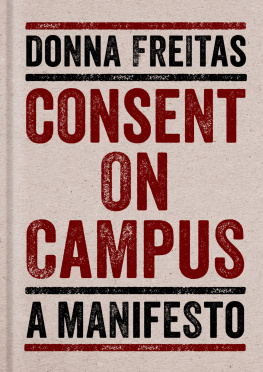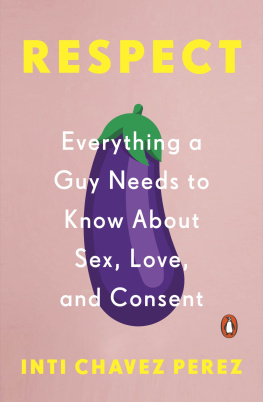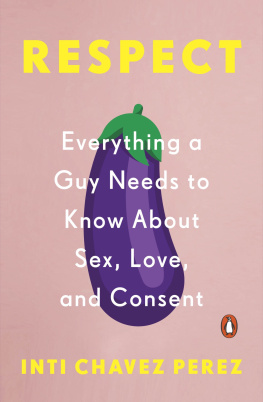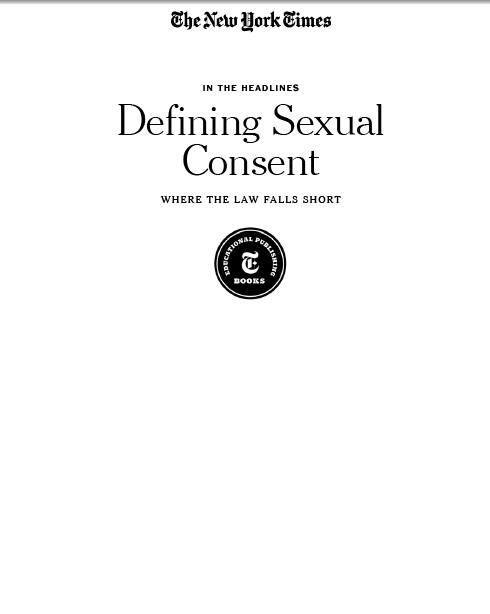Published in 2019 by The New York Times Educational Publishing in association with The Rosen Publishing Group, Inc.
29 East 21st Street, New York, NY 10010
Contains material from The New York Times and is reprinted by permission. Copyright 2019 The New York Times. All rights reserved.
Rosen Publishing materials copyright 2019 The Rosen Publishing Group, Inc. All rights reserved. Distributed exclusively by Rosen Publishing.
First Edition
The New York Times
Alex Ward: Editorial Director, Book Development
Phyllis Collazo: Photo Rights/Permissions Editor
Heidi Giovine: Administrative Manager
Rosen Publishing
Megan Kellerman: Managing Editor
Julia Bosson: Editor
Greg Tucker: Creative Director
Brian Garvey: Art Director
Cataloging-in-Publication Data
Names: New York Times Company. Title: Defining sexual consent: where the law falls short / edited by the New York Times editorial staff. Description: New York : New York Times Educational Publishing, 2019. | Series: In the headlines | Includes glossary and index. Identifiers: ISBN 9781642821093 (library bound) | ISBN 9781642821086 (pbk.) | ISBN 9781642821109 (ebook) Subjects: LCSH: Sexual consentJuvenile literature. | Sexual ethicsJuvenile literature. | RapeJuvenile literature. Classification: LCC HQ32.D445 2019 | DDC 176'.4dc23
Manufactured in the United States of America
On the cover: Illustration by Linda Huang.
Contents
Introduction
in the fall of 2014, Emma Sulkowicz, a senior at Columbia University, made headlines across the country with their thesis art project, Carry That Weight. Mx. Sulkowicz, who uses nonbinary honorifics and pronouns, committed themself to carrying their 50-pound university-issue twin XL mattress around campus with them to all of their classes. The physical burden, they explained, represented the emotional difficulty they experienced as a survivor of sexual assault: the fall of their sophomore year, they had been sexually assaulted by a member of a fraternity. Columbia heard the case, but even after two other women came forward with their stories about the same student, the university panel dismissed the charges against him.
Sulkowiczs experience is representative of a larger crisis reaching its apex on university campuses. RAINN.org estimates that one out of four female undergraduates and one out of twenty male students experience a form of sexual violence. Over the years, university officials and police forces have done little to resolve or stem this epidemic. Sulkowiczs case helped to spark a debate that many saw as long overdue: What constitutes sexual consent? When can it be revoked? How can universities offer safety to their students inside their bedrooms? And how can these cases be litigated when the evidence comes down to two peoples experiences of an intimate encounter, sometimes blurred by alcohol?
For the victims of sexual assault, the consequences can be traumatic. The number of sexual assaults reported on campuses greatly exceeds the number of students disciplined for committing them, and that fails to account for those that go unreported. In order to understand what is at stake in this debate, it is essential to listen to the first-person testimony provided by survivors. The articles in this book feature the voices of numerous victims of sexual assault and show the impact of these experiences on their university educations, psychological states and lives.

NOAH BERGER FOR THE NEW YORK TIMES
Students at the Urban School of San Francisco attended a health class focused on affirmative consent in San Francisco, Oct. 1, 2015. With Gov. Jerry Browns signature on a bill that month, California became the first state to require all high school health education classes give lessons on affirmative consent, which includes explaining that someone who is drunk or asleep cannot grant consent.
The debates over sexual assault tend to fall into two camps: while victims and victims advocates see a system that creates an insurmountable burden of proof, the other side sees a process that presumes guilt before innocence and a campus mentality that resembles more of a witch hunt than a fair trial. Paul Nungesser, the student accused of assaulting Sulkowicz, won a lawsuit against Columbia University in 2017 claiming that the university failed to protect him from the consequences of Sulkowiczs project.
The articles in this book highlight the cases that pushed the debate over sexual consent into the headlines as well as the innovative solutions that have been proposed to address the issue of sexual assault. One policy that has emerged is the notion of affirmative consent: sexual encounters must involve both parties making explicit statements of their consent. In other words, while sexual consent has traditionally been taught as no means no, universities that institute affirmative assent policies now show students that yes means yes.
In order to put pressure on universities to step up their response systems to these situations, the Obama administration set new guidelines for universities to address the complaints on campus. However, in 2017, Betsy DeVos, President Trumps secretary of education, announced her plans to undo many of those protections, claiming that the policies did more to harm the accused than to protect the victims. And so the debate rages on. Meanwhile, individuals attempt to negotiate intimate relationships in the gray zone.
CHAPTER 1
Understanding Sexual Consent
The challenge in litigating sexual consent comes from its difficulty as an objective concept. Despite sexual education, consent remains difficult to talk about, both before and during sexual encounters. The articles in this chapter highlight the issues at stake in this debate: What constitutes consent? Who can give it? And can it be taken away? What constitutes rape and when is it miscommuni-cation or, simply, bad sex?
Getting to No
ESSAY | BY SUSAN DOMINUS | DEC. 21, 2014
the night started , as so many college nights do, with a red cup pressed into a hand. Ubiquitous at tail gates and parties, those bright plastic cups are a harbinger of carnival, of unleashing. The hand around the cup was mine.
I remember many of the details only vaguely, but the cup shines through; I can still taste the sweet-sour drink inside it. No matter how much I sipped and each sip made the next one easier the cup remained filled, courtesy of a young man, a fellow college senior, attending to its contents. I liked him, a little; I found his focus on me impressive.
I drank from the red cup, and in the next scene from that evening that I can recall, I am on my bed, and he is on top of me. I am resisting, but he is heavy, so heavy, and my limbs so leaden. I am certain he thought he was, as we used to say back then, a totally decent guy. Even now, I can imagine him as someones loyal husband, a maker of pancakes, his kids soccer coach. But that night I said no, and still he lay there, massive, pleading, sloppy with beer, for what seemed to be hours (but surely was not), until I finally stopped holding him off. Too close to sleep to rouse myself to outrage, I settled for capitulation, then revulsion.











